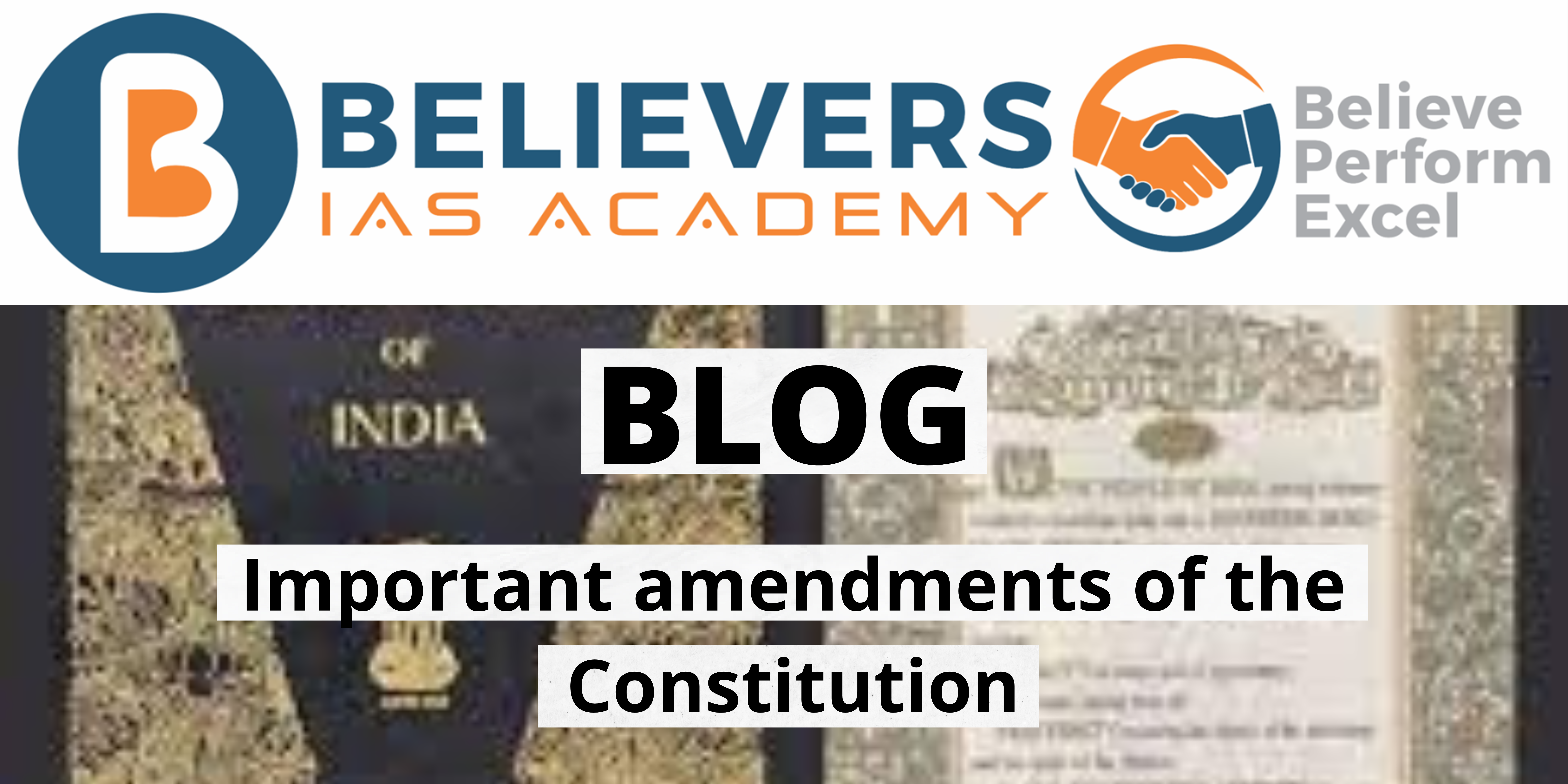Important Amendments of the Constitution – Part 3
The important amendments
Part 3
Forty Second Amendment Act, 1976
42nd Amendment Act is the largest amendment to Indian constitution and hence is known as mini constitution.
The major changes made under this Amendment are;
- Added three new words i.e., socialist, secular and integrity into the Preamble (only change in Preamble).
- Added a new Part IV A-Fundamental Duties for the citizens.
- President mandatorily has to act according to the aid and advice of the Council of Ministers.
- Added Part XIV A which provides for administrative tribunals and tribunals for other matters.
- Fixed the seats in the Lok Sabha and state legislative assemblies on the basis of 1971 census till 2001 as a population controlling measure.
- Made the constitutional amendments outside the purview of judicial review.
- Curtailed the power of judicial review and writ jurisdiction of the Supreme Court and high courts.
- Increased the tenure of Lok Sabha and state legislative assemblies from 5 to 6 years.
- Provided that any laws made for the implementation of any Directive Principles cannot be declared invalid by the courts on the ground of violation of some Fundamental Rights (Art 14, 19 and 31).
- Empowered the Parliament to make laws to deal with anti-national activities which will take precedence over Fundamental Rights.
- Added three new Directive Principles which are equal justice and free legal aid, the participation of workers in the management of industries and protection of the environment, forests, and wildlife.
- Facilitated the proclamation of national emergency in any part of the territory of India.
- Increased the duration of the one-time President’s rule in a state from 6 months to one year.
- Empowered the Centre Government to deploy its armed forces in any state to deal with a grave situation of law and order.
- Shifted five subjects from the state list to the concurrent list, which are, education, forests, protection of wild animals and birds, weights and measures and administration of justice, constitution and organisation of all courts except the Supreme Court and the high courts.
- Removed the requirement of quorum in the Parliament and the state legislatures.
- Empowered the Parliament to make decisions from time to time the rights and privileges of its members and committees.
- Provided provisions for the creation of the All-India Judicial Service.
- Reduced the procedure for disciplinary action by taking away the right of a civil servant to make representation at the second stage after the inquiry (i.e., on the penalty proposed).




